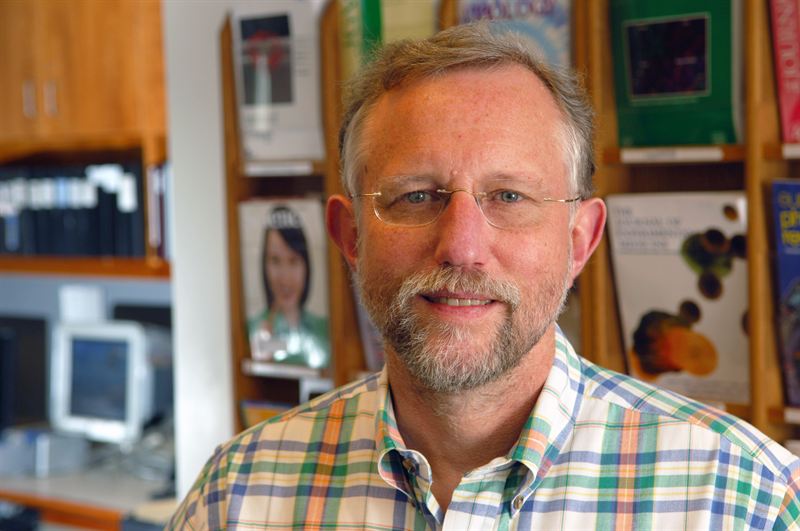Hepatitis C success based on strong research

[PRESS INVITATION, 18 May 2015] The new hepatitis C drugs represent a genuine breakthrough in pharmaceutical research, and would not have been possible without the work done on the virus by Charles Rice at Rockefeller University. Dr Rice is now coming to Sweden to speak about hepatitis C for the annual Nicholson lecture, where an introduction will be given by one of Sweden’s best-known hepatitis C patients, Professor Hans Rosling.
Reporters are welcome to attend the lecture and interview the speakers.
Nicholson Lecture: Hepatitis C: 26 Years Later
Speakers: Dr. Charles M. Rice, professor of virology at Rockefeller University. Introduction by Hans Rosling, professor at Karolinska Institutet.
When: 25 May 2015, 4.00 pm – 5.30 pm
Where: Aula Medica, Nobels väg 6, Karolinska Institutet, Solna campus
Some 130 million people around the world are thought to be infected with hepatitis C, a virus that can lead to severe liver diseases such as cirrhosis and cancer. There is currently no vaccine, but last year several new drugs were launched that are powerful enough to cure the disease.
“Which is why this is the perfect time to invite Charles Rice here to speak,” says Matti Sällberg, professor of clinical microbiology at Karolinska Institutet. “He’s been involved in the key discoveries that have led to the new medicines we have today.”
The hepatitis C virus was discovered in the 1980s, and Dr Rice was one of the first scientists to study it. He has shown that the virus uses an enzyme, protease, to cleave proteins and reproduce. Drugs are now available that target this very enzyme and inhibit its function.
Dr Rice has also developed replicon and cell culture systems for the hepatitis C virus. Such systems are essential for studying the viral lifecycle, and to screen and evaluate new drugs.
During the Nicholson lecture, Dr Rice will be describing the scientific journey from the discovery of the virus to the development of today’s powerful drugs.
Hans Rosling, professor of public health science at Karolinska Institutet, will be introducing the lecture. He contracted hepatitis C many years ago and shortly after his diagnosis travelled to Japan to purchase the new hepatitis C drugs, which appeared on the Japanese market before arriving in Sweden and which are still unavailable to most patients here. So while being himself involved in research, he is also able to give the patient’s perspective on the disease.
The lecture is part of a large collaboration programme between Rockefeller University in the USA and Karolinska Institutet. Rockefeller University is widely renowned for its research and education in the biomedical sciences, and has produced over 20 Nobel laureates. The annual Nicholson lectures are held by researchers from Karolinska Institutet and Rockefeller University in each country. Also included is an inter-university exchange programme for researchers.
Jonas Frisén, professor at Karolinska Institutet and stem-cell researcher, has been selected as this year’s speaker at Rockefeller University.
To book an interview, contact:
Press officer Sabina Bossi
Tel: 08-524 860 66 or 070-614 60 66
Email: sabina.bossi@ki.se
For information about the subject and the lecturer, contact:
Professor Matti Sällberg
Tel: 070-608 21 01
Email: matti.sallberg@ki.se
For information about Karolinska Institutet’s partnership with Rockefeller University:
International coordinator Johanna Diehl
Tel: 08-524 863 84
Email: johanna.diehl@ki.se
Karolinska Institutet is one of the world's leading medical universities. Its vision is to significantly contribute to the improvement of human health. Karolinska Institutet accounts for over 40 per cent of the medical academic research conducted in Sweden and offers the country´s broadest range of education in medicine and health sciences. The Nobel Assembly at Karolinska Institutet selects the Nobel laureates in Physiology or Medicine.
Tags:


